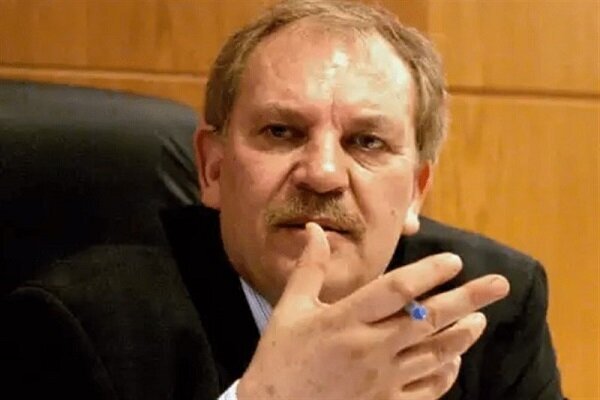Iran a successful model for the region: ex-Lebanese minister

TEHRAN – Noting that the world is looking to Iran as an inspiring example for Islamic movements, former Lebanese labor minister Tarad Hamadeh says that the Islamic Republic founded a successful model for the region.
“There is no doubt that the Islamic Revolution due to importance and status of Iran will have an impact on politics, economy, culture, and the strategic military balances, as well as on culture, production of ideas and advancement of science,” Hamadeh tells the Tehran Times.
“Iran is now the center of attention of states and peoples in the entire region, and it deserves to be the model and example,” the Lebanese politician points out.
The following is the text of the interview:
Q: What is the message of the Islamic Revolution to the region and the world? What are the links between the Islamic Revolution and the idea of resistance?
A: The Islamic Revolution took place in Iran at a time when the world was living under the international bipolar struggle. It was in the time of the Cold War and arms race, including what was known as Star Wars, as well as competing economic systems to achieve sustainable development.
The first thing that the Islamic Revolution presented to the world was the right of peoples to freedom, sovereignty, independence, self-determination, and the fight against colonial domination and the tyranny of the great powers over the world.
These goals are achieved through building self-sufficient forces, expelling the colonialists, and putting forward the slogan “neither East nor West, the Islamic Republic,” which is the symbol of freedom and dignity.
The young revolution could enhance the Islamic world's sense of dignity and pride, after it was in a position of subordination and obedience, and it provided a model for the major regional states in managing world affairs.
This policy was a model for what we call the policy and approach of resistance in the face of global arrogance.
Q: Why did some Arab countries in the Persian Gulf were reluctant to receive the message of the Islamic Revolution and they did not even spare any effort to abort the revolution?
A: Some countries in the (Persian) Gulf region follow the American colonial policies. The former shah of Iran was known as the policeman of the (Persian Gulf), because he ruled the region for the benefit of his American masters.
When Saddam Hussein, a dictator, waged an aggressive war on Iran, the (Persian) Gulf countries were providing him with unconditional support, until he occupied Kuwait and then they brought American forces into the region.
The (Persian) Gulf countries are now normalizing ties with the Zionist enemy in an attempt to ally with the enemy to confront Islamic Iran, which extended a hand of cooperation to them.
Iran defends the region and protects it from all aggression as a pivotal pillar of stability and security.
Q: How was Lebanon inspired by the idea of the Islamic Revolution in Iran, especially through Imam Musa al-Sadr and martyr Mustafa Chamran?
A: The Lebanese people were influenced by the Islamic Revolution in Iran, as well as by the ideas of Imam Khomeini.
I remember that we were among the strong supporters of the Islamic Revolution and the ideas of Imam Khomeini; love for Khomeini is a love for all values.
At that time, Lebanon was a center of the Palestinian resistance, and part of southern Lebanon and western Beqaa (East of Lebanon) were under Israeli occupation.
I remember that I was in Tehran at the conference of the “oppressed people” in June 1982, and I attended the conference in which Hezbollah was founded, and I wrote that in my novel, “Sea Scene” (Mashhad al-Bahr).
Hezbollah and the Islamic Resistance were strong allies of the Islamic Revolution and the Quds Force of the Revolutionary Guards. The party’s ideas are based on the theory of "guardianship of the Islamic jurist" in the Shiite Islamic political jurisprudence.
Hezbollah succeeded to form a sublime model for the Islamic Revolution and serve as the sword of truth, which defeated the Zionist enemy and the Takfiri terrorist enemy.
It is still the ideal model in the Islamic political movements that were inspired by the ideas of Imam Khomeini and the Islamic Republic in Iran.
Q: How do you assess Iran’s confrontation with the U.S. projects in the context of regional balances? Do you see Iran as a successful model in self-sufficiency in scientific and military fields?
A: At this stage, when the level of conflicts has increased at the international and regional levels, Iran plays a pivotal role in leading the Islamic resistance movement to confront global arrogance.
It makes the Islamic state a major regional power capable of participating in managing world affairs.
Iran is now in a very strong position at international and regional level, and it is a force that weighs in the balance of power.
The Iranian power cannot be ignored in any issue related to the affairs of the West Asian region, in addition to international relations.
Trump has gone, the Islamic republic in Iran has remained stable, while sanctions, blockades, soft warfare, threats… have failed. The situation is excellent in Syria, in Palestine, and in Lebanon. In Yemen, the war will stop despite the attempts of aggressors.
Q: How can the idea of resistance be extended to non-military fields such as economy and culture?
A: There is no doubt that the Islamic Revolution due to importance and status Iran will have an impact on politics, economy, culture, and the strategic military balances, as well as on culture, production of ideas, and the advancement of science.
Iran is now the center of attention of states and peoples in the entire region, and it deserves to be the model and example.
